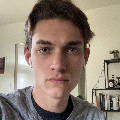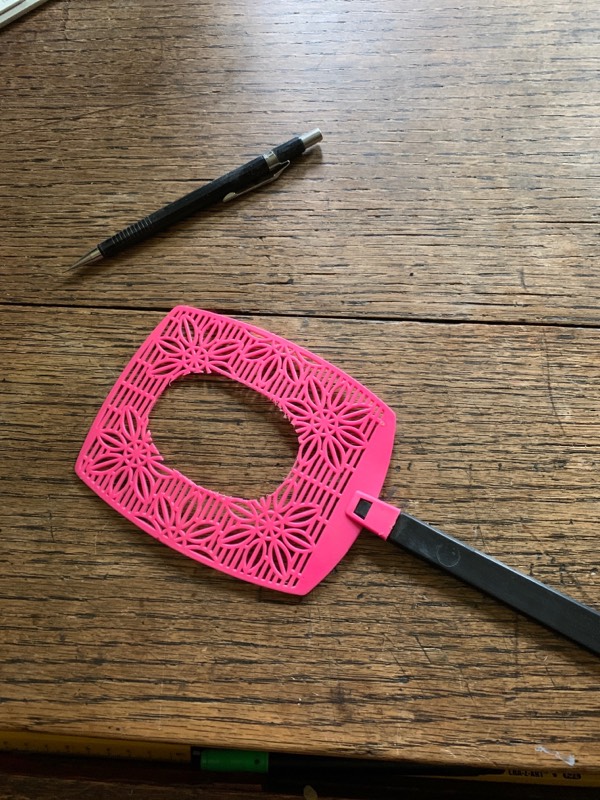So bit by bit, the fly population gets a heck of a lot smarter. Right? And it's more difficult to catch flies. So I thought, what if we changed that dynamic and such that we catch mostly the slow flies are left to live and the fast flies die off. Now, that could be a complicated procedure or a very simple one. I found that by just cutting out an egg shaped hole in the middle of an ordinary flyswatter

Tim Ereneta
@Tim · 0:10
This is the most brilliant genius invention I have heard all day. Why didn't I think of that

Nolan S
@nolanstanley · 0:13
Hello. Hello, Mr. Inventor. I love your idea. I've heard of this before because you told me, but it's a really great idea I actually started implementing in my own household. So props to you

Michael J.
@goatea · 0:21
Yes. I remember you telling me this as well. I wonder if taken to the extreme, if you're going to breed a bunch of fat, you know, lazy, dumb, very, very large flies that just sort of sit around your countertop. And it's an interesting concept
RJ Stanley
@Mzurisana · 0:54
Goatee. That reminds me of a lot of people I know in large bureaucracies. But actually, what happens in the fly population, I think, is that they wouldn't be very fat. They'd be large, maybe dumb and slow. True. But they really wouldn't be able to get food because they'd be eaten or consumed by other insects or people. They'd be killed off by people smacked. So it's kind of funny. You're dumbing down the gene pool
Swell Team
@Swell · 0:15
RJ Stanley
@Mzurisana · 0:49
And for you, Mr. Nolan, may I suggest that, you know, if you think this has merit, it would be an interesting study to to to bring up in your class, an appropriate class, right? Where you look at what this actually would do and try a test of it. It'd be interesting to quantitize this thing and see if it has any sense. Right? It'd be great to be able to actually point to hard data that shows how it would work or not
